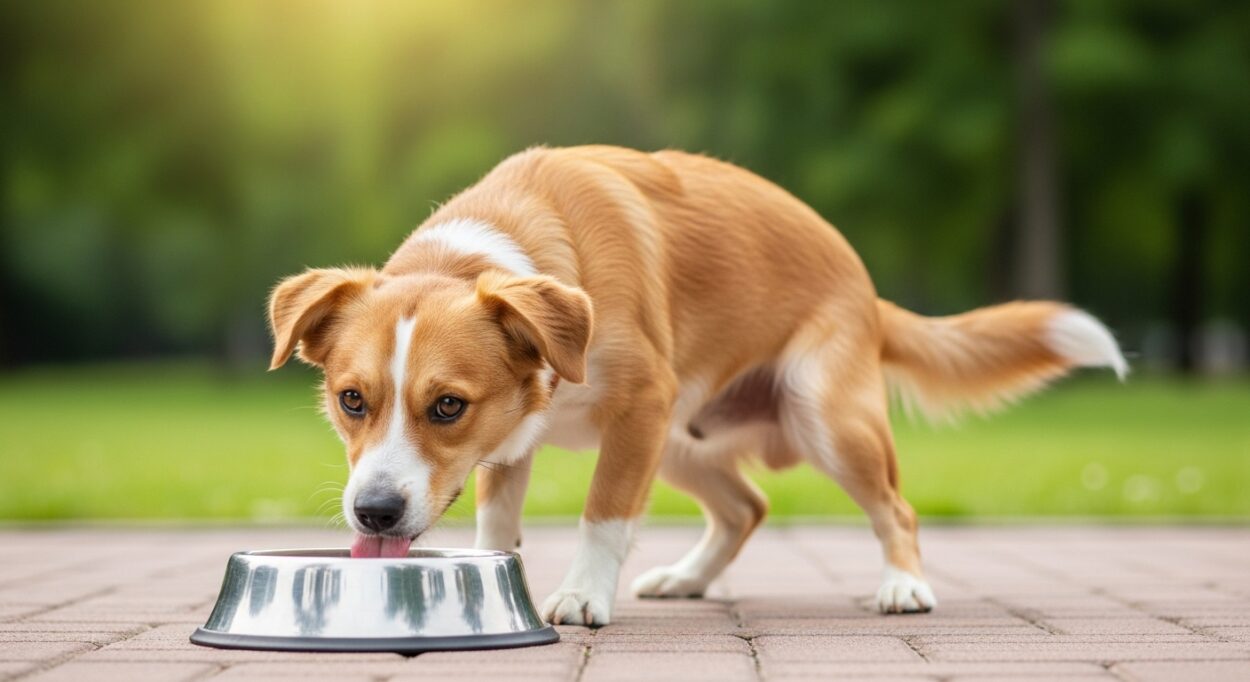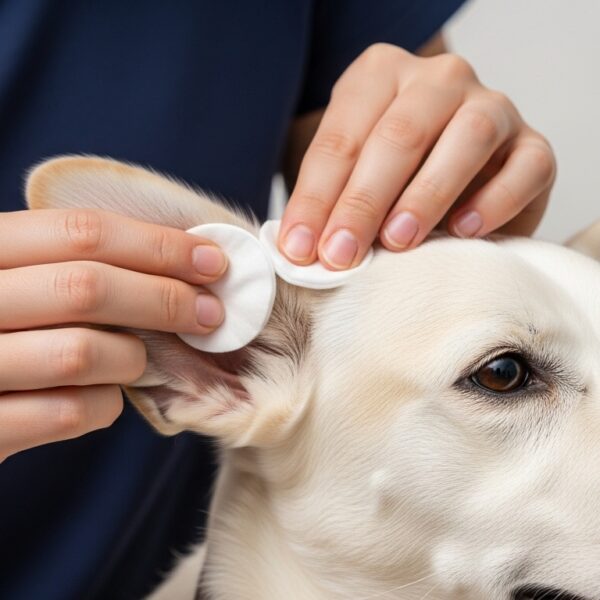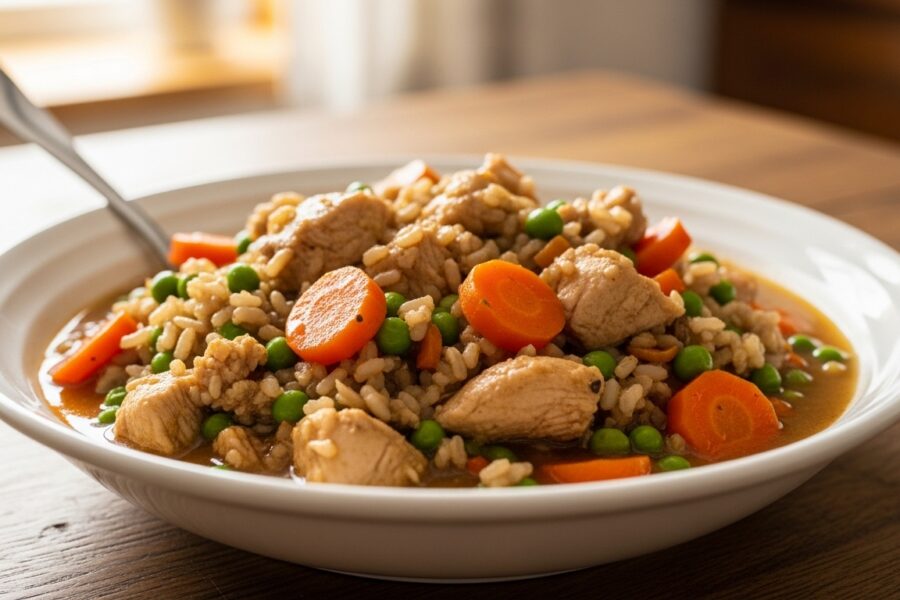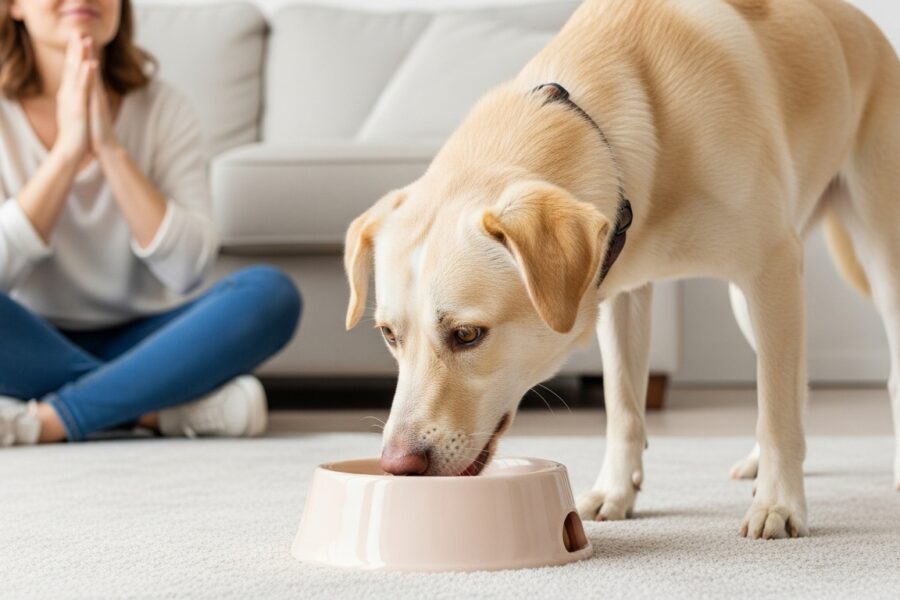Table of Contents
Introduction
Urinary problems can sneak up on even the healthiest pups. From frequent accidents to painful urination or even bladder stones, the right diet plays a HUGE role in prevention and management. Choosing dog food for urinary health isn’t just about what tastes good—it’s about picking the right ingredients to help your best friend stay comfortable and avoid repeat vet visits. Whether your dog is having trouble now or you simply want to keep their kidneys and bladder in tip-top shape, here’s what every pet owner needs to know.
1. Understand Why Urinary Health Matters
Dogs, especially certain breeds, are prone to urinary tract infections (UTIs), bladder stones, or even kidney problems. These issues can result from genetics, low water intake, or (very often) poor-quality diets that are too salty, too rich, or filled with non-beneficial minerals.
Proper nutrition can:
- Lower urine pH (less acidic = fewer stones)
- Dilute urine (flush out toxins and bacteria)
- Reduce inflammation in the urinary tract
- Support kidney and bladder function
2. Look for These Key Ingredients
Not every bag or can labeled “urinary” tells the whole story. Here’s what actually helps urinary health:
- High Moisture ContentWet foods or adding water/broth to dry kibble helps keep urine diluted—critical for flushing the system.
- Controlled Mineral LevelsEspecially magnesium, phosphorus, and calcium. Too much can create crystals/stones.
- Low SodiumHigh salt can stress the kidneys and increase blood pressure.
- Cranberry, DL-Methionine, or Vitamin CThese can naturally acidify urine and reduce infection risk (always use under vet guidance).
- Quality Protein (in balance!)Good protein helps, but too much—or poor quality—can overwhelm the kidneys.
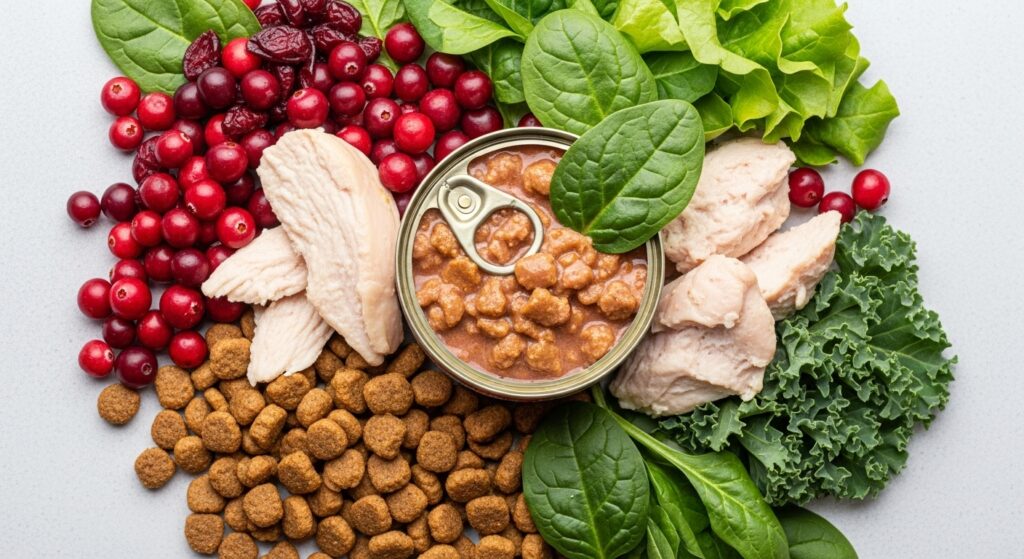
3. Common Ingredients & Additives to Avoid
- Artificial Colors, Flavors, PreservativesThese can cause inflammation or allergy-like symptoms.
- Excess Filler Grains (corn, wheat, soy)Dogs with sensitive systems fare better with simpler, digestible carbohydrates.
- Meat By-Products of Unknown SourceAlways choose named meats—“chicken” over “meat by-product.”
4. Read the Label: What Makes a Food “Urinary” Formula?
Some diets are therapeutic urinary formulas (prescription, e.g., Hill’s c/d, Royal Canin Urinary SO), while others are simply “urinary health support” foods you can buy in stores.Therapeutic diets tightly control mineral content and are needed for dogs with a history of stones or crystals.Over-the-counter formulas might help prevent problems, but always ask your vet first if your dog has diagnosed urinary issues!
Bonus Tip:Dogs with chronic urinary issues often benefit from food rotation and extra hydration—think broths, topping with wet food, or even ice cubes in the bowl.

5. When to See the Vet
Picking the right food is important, but it’s not a cure-all. See the vet if your dog:
- Strains to pee or can’t go at all
- Has blood in their urine
- Starts urinating more/less than usual
- Licks at their groin or cries when urinating
Your vet may recommend prescription urinary diets or investigate underlying causes!
Top Vet-Recommended Urinary Health Dog Foods (2025)
- Hill’s Prescription Diet c/d Multicare
- Royal Canin Urinary SO
- Purina Pro Plan Veterinary Diets UR
- Wellness Simple Limited Ingredient Diet
- Blue Buffalo Natural Veterinary Diet WU
Always ask your vet before switching to any prescription food.
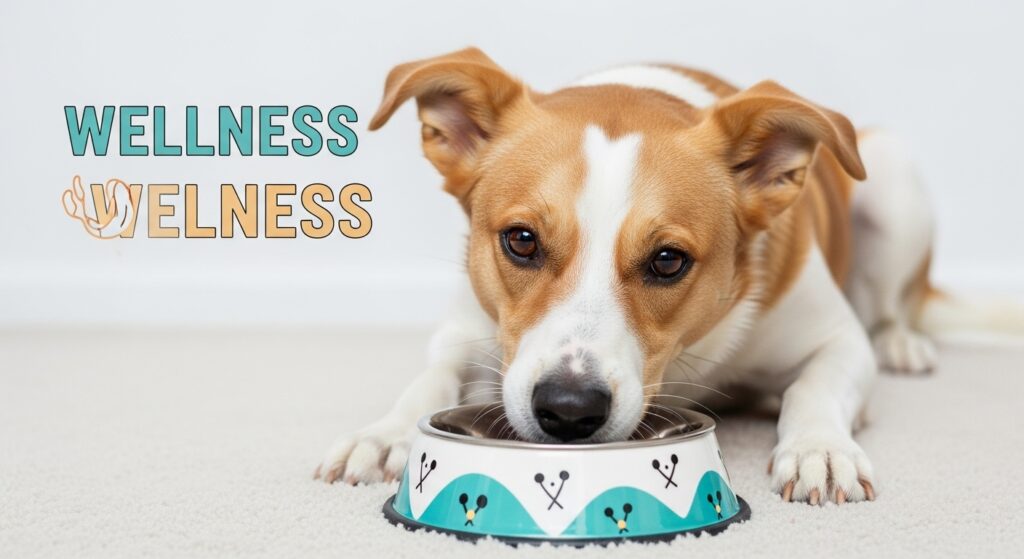
Additional Tips for Urinary Tract Health
- Keep fresh water available 24/7 and change it daily.
- Encourage frequent potty breaks throughout the day.
- Keep your dog at a healthy weight—obesity increases risk of urinary problems!
- Add measured water or bone broth to meals for extra hydration.
- Avoid giving table scraps or salty treats.
Frequently Asked Questions (FAQ)
Q: Can I prevent urinary problems with diet alone?A: Diet is powerful but not the whole picture. Genetics, stress, hydration, and health conditions all play roles. Good food plus good habits make a real difference.
Q: Is it safe to give my dog cranberry supplements?A: Sometimes, but talk to your vet! Cranberry can acidify urine and lower infection risk but isn’t a magic cure (and not suitable for all dogs).
Q: Should I feed wet or dry food for urinary health?A: Wet food is typically better because of its higher moisture content, but you can add water or low-sodium broth to dry food if your dog prefers kibble.
Q: Are there any home remedies for urinary tract health?A: Focus on hydration, healthy diet, and regular vet checkups. Home remedies like apple cider vinegar or herbal teas should not replace professional advice.
Q: How can I tell if a food is good for urinary health?A: Look for foods that state “controlled mineral content,” “urinary health,” or have vet approval for urinary support. Always double-check that ingredients and nutritional analysis line up with your dog’s needs!
If you ever notice any sign of urinary problems, don’t wait—quick action and the right diet can save your dog a lot of pain and trouble. Always partner with your veterinarian for the best outcome!

